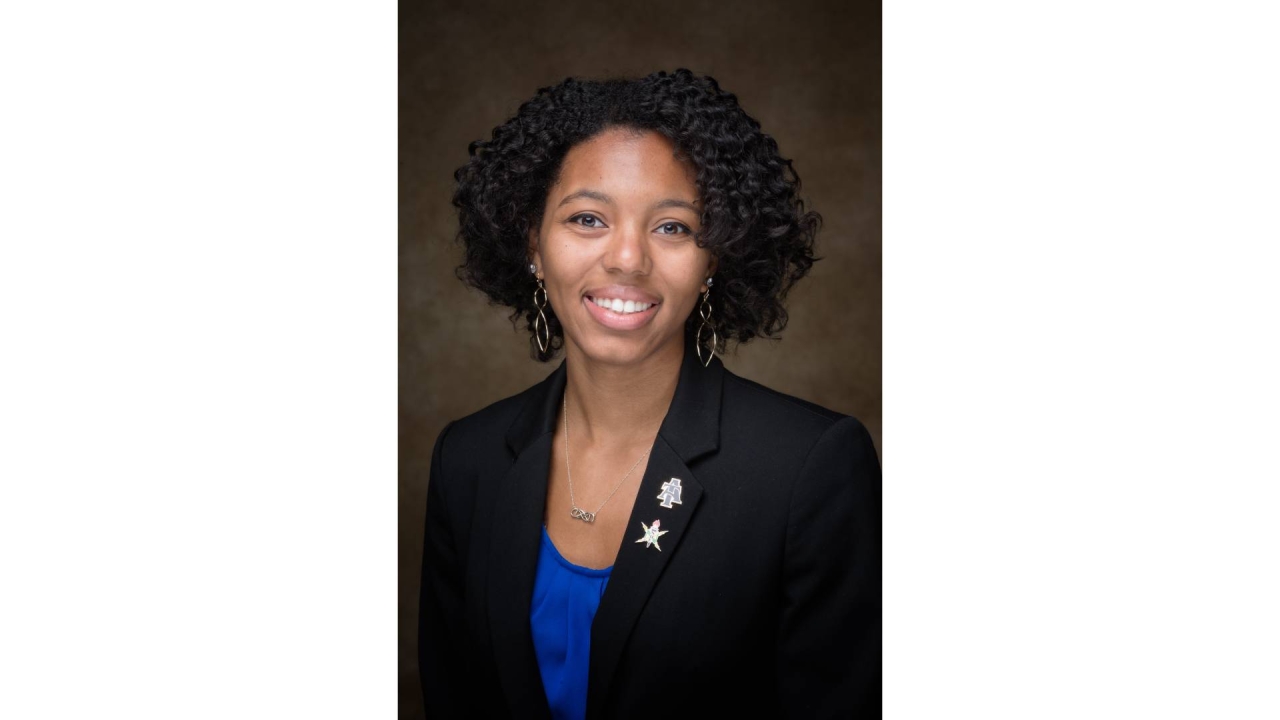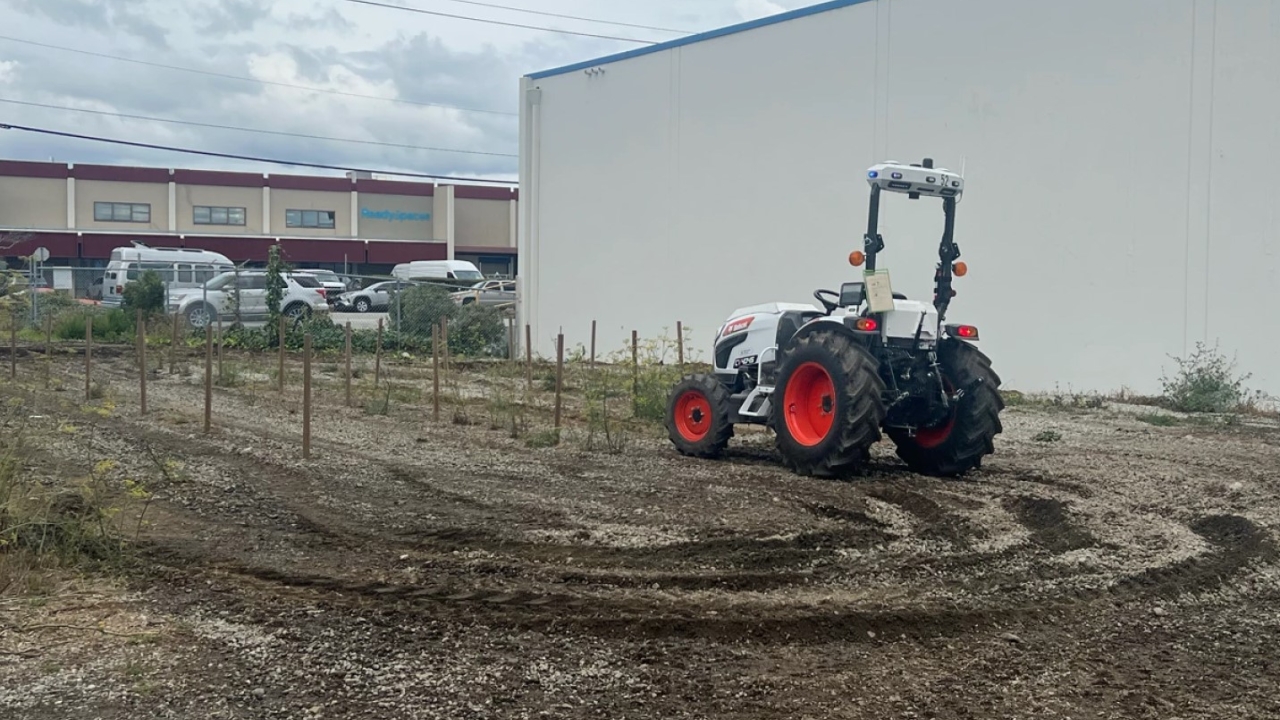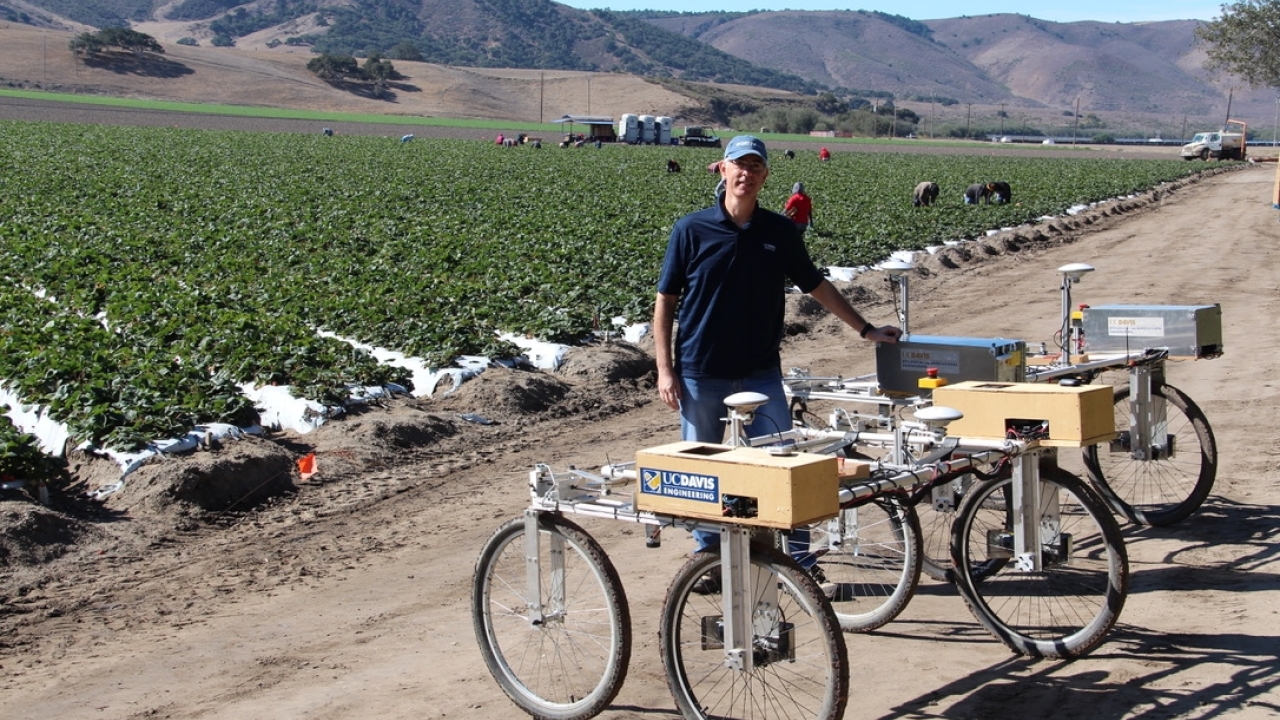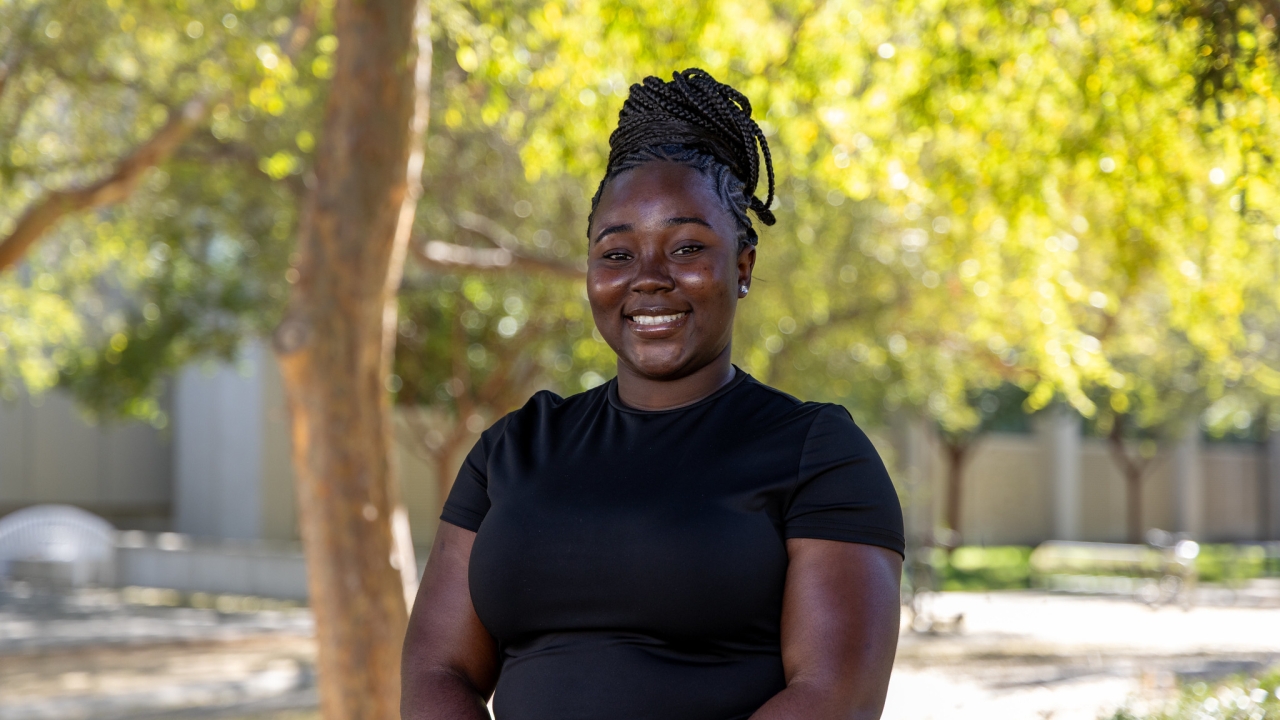
Morgan Harris: Building a Healthier World with Prosthetics
This spotlight is part of our 2022 Black Futures Month feature.
Second-year Mechanical and Aerospace Engineering M.S. student Morgan Harris wants to be on the front lines of building a healthier community. Through her research on prosthetic devices and her dream of opening her own prosthetics and orthotics clinic, she wants to improve people’s lives while offering the same type of mentorship and outreach experiences that inspired her.
“It’s really important to me to make sure my work is impactful to others,” she said. “I’ve always liked to build things, and [prosthetics] combined my interests in anatomy and helping people have a better quality of life.”
Harris works in Assistant Professor Jonathon Schofield’s Bionic Engineering and Assistive Robotics (BEAR) lab to build robotic hand exoskeletons for stroke patients. After a stroke, some patients may experience limited function in their dominant hand, which can make it difficult to complete everyday tasks. Assistive devices can help them either replace or improve dexterity and function.
“We’re trying to build a hand exoskeleton as an assistive device to re-teach the hand how to do certain grasp motions or, if the muscle memory is completely gone, give people something they can use to grab a cup, for example,” she said.
Every stroke patient’s experience, goals and hand size are different, but she wants to create an adaptable glove-like device.
“The goal is to create something as general as possible, but specifically for stroke patients,” she said. “If the control side works, then it’s not too difficult to customize it for the size of the hand.”
Following a Path
Harris’ work in Schofield’s lab is the first time she’s focused specifically on assistive robotics, but it builds on her lifelong passions. She began building things at age two and developed an interest in anatomy and physiology as she got older. During a high school engineering program at Georgia Tech, she built a working replica of the heart and learned she could mix these interests.
“I’ve always thought that the human body is fascinating because I view it as a machine with systems that do things that we don’t even realize they’re doing,” she said. “Being able to understand just a fraction of that is really cool.”
She solidified her interest in prosthetics during a shadow program at the Rehabilitation Institute of Chicago. She was able to see the entire process, from directly after an amputation through rehabilitation, re-fitting and fine-tuning the technology. This got her thinking about her future.
“Seeing firsthand how prosthetics work, how they help people and what the rehabilitative process is like got me interested and [thinking] about how I wanted to fit in,” she said.
Harris received her B.S. at North Carolina Agricultural and Technical State University. She was drawn to UC Davis for her master’s program by her mentor, UC Davis Vice Chancellor of Diversity, Equity and Inclusion Renetta Tull, as well as the Schofield lab’s unique research opportunities in assistive prosthetic devices.
Since then, Harris has been thankful for the connections UC Davis that have helped her feel welcome and supported. She has been a part of the Black Graduate Students and Professionals Association, the Graduate Students of Color mentoring program and the Preparing Engineering Graduate Students for the 21st Century (PEGS21) program. She is particularly thankful to have met Research & Graduate Studies Development Coordinator Alin Wakefield through PEGS21.
“He’s been a great resource and made sure that we felt included and that even though we weren’t on campus [due to the pandemic], we were part of Davis,” she said.
Looking Forward
After finishing her M.S. in December 2022, Harris plans to build on this foundation and pursue a degree in prosthetics and orthotics so she can open a clinic. Helping people regain function through prosthetics will improve quality of life, and offering the type of community outreach, internships and shadow programs that got her interested in the field will inspire the next generation.
Harris is competitive by nature, so she’s trying to get a head start on these dreams by volunteering at a local prosthetics and orthotics clinic in her spare time. She’s learned a lot about day-to-day operations and interacting with patients while lending some of her engineering expertise to clinicians. With her research, experience and unwavering goals, she hopes to build a bright future.
“It’s been eye-opening to see how these devices positively impact people’s lives every day,” she said. “I want to use this same kind of research in the future to impact the community.”




